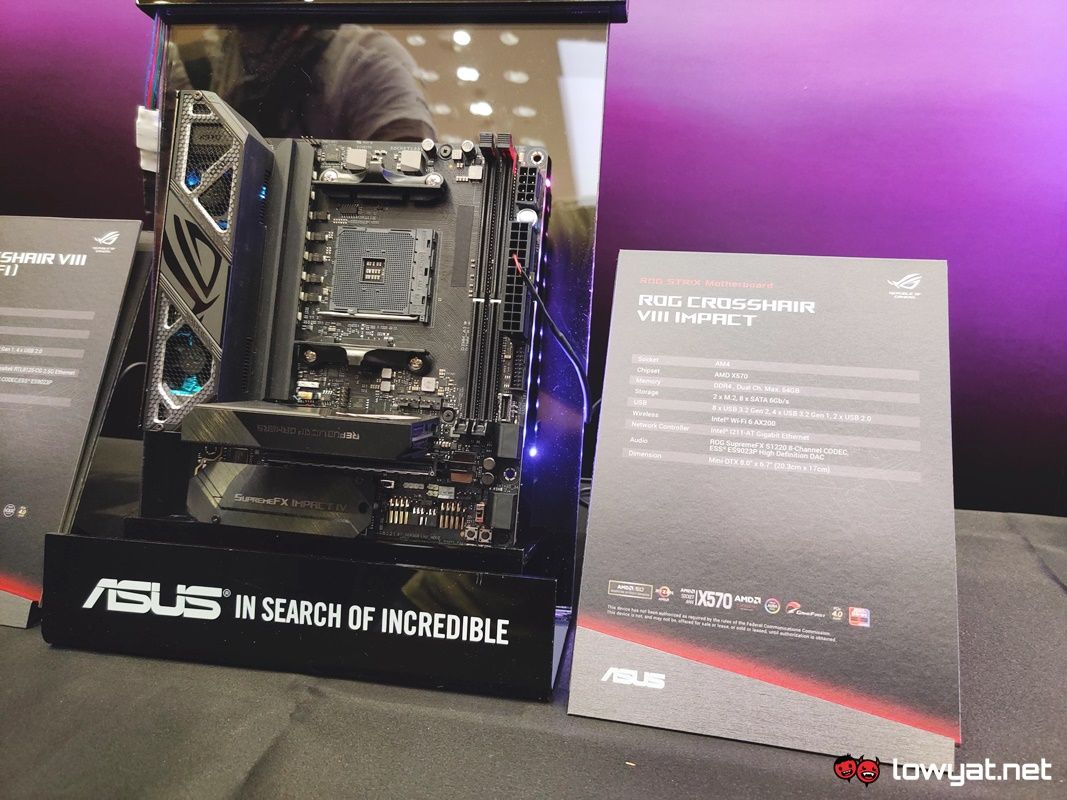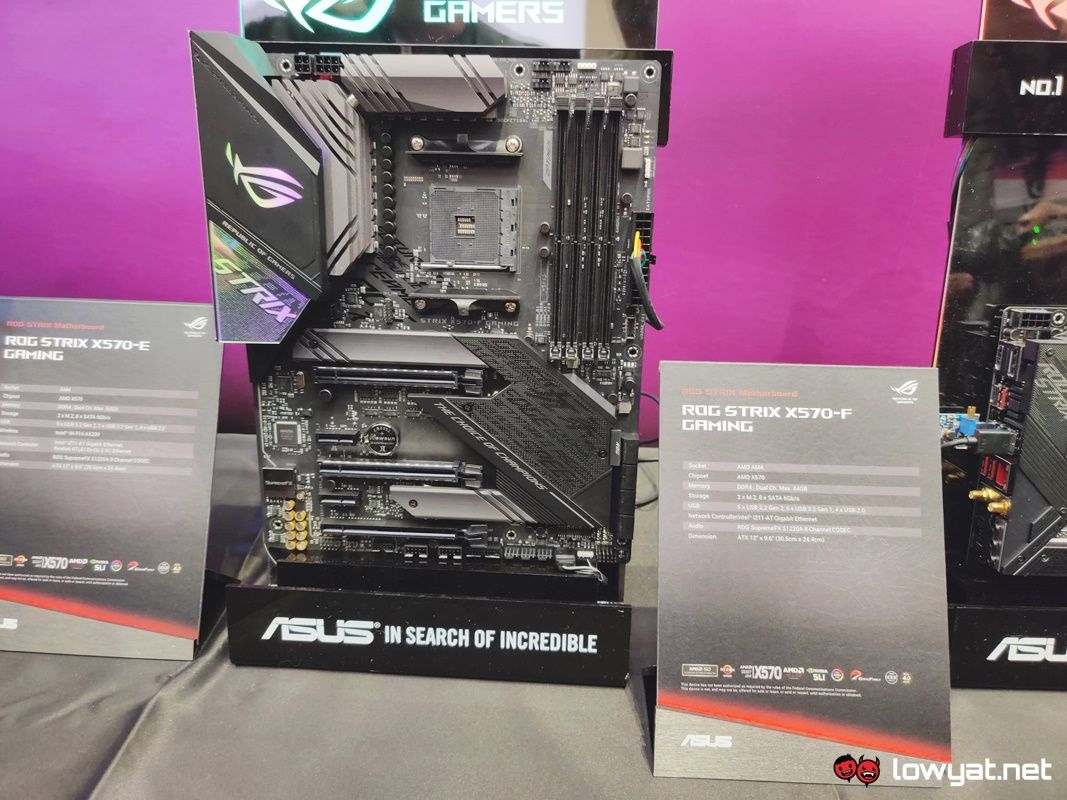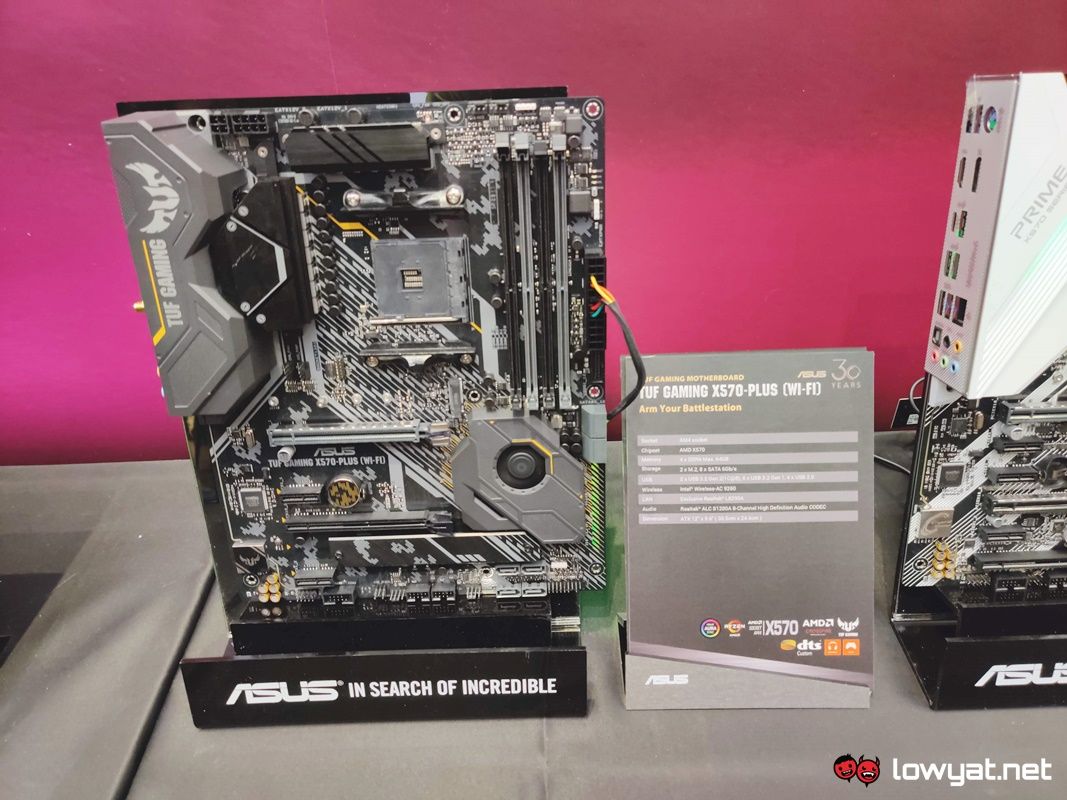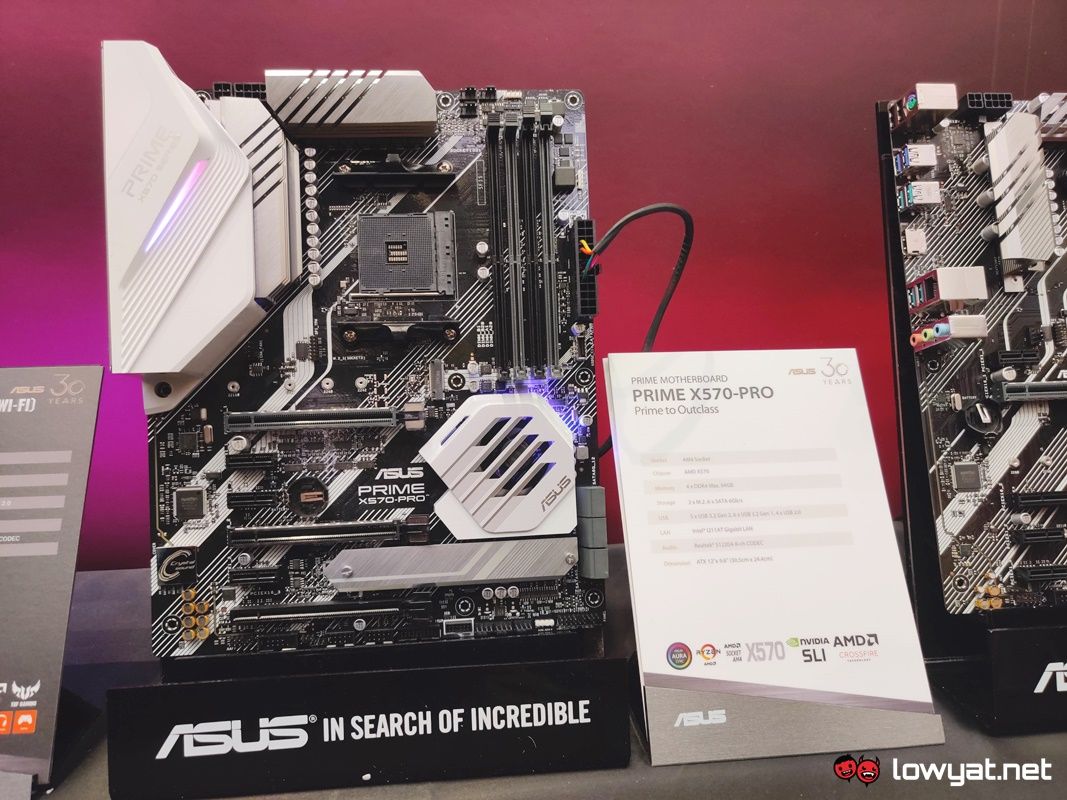The PC component maker released no less than 12 different motherboards, with several variants belonging to its ROG, ROG Strix, TUF Gaming, Prime, and Pro series. In the ROG lineup alone, ASUS launched the 8th generation of its ROG Crosshair motherboards. Under the lineup, the ROG Crosshair VIII series comprises the Formula, Hero (Wi-Fi), a non-Wi-Fi variant of the Hero, and the Impact. Of the three the ROG Crosshair VIII Impact is a mini-ITX motherboard. In terms of memory support, both the Formula and the two Hero variants have the standard four slots, which supports up to 128GB DDR4 RAM. While the Impact will only support half of that amount. One of the primary features of the new X570 chipsets is, of course, the introduction of the new PCIe 4.0 standard across the board. For the Formula and Hero, both SKUs are equipped with 2 PCIe 4.0 slots, while the Impact understandably has one expansion slot.
Like all high-end performance motherboards, the ROG Crosshair VIII is also equipped with the latest USB 3.2 Gen2 and USB 3.2 Gen1 ports, both embedded into the motherboards and the rear I/Os. NVMe PCIe M.2 slots are also present, as dual LAN ports. On that note, it should be pointed out that the Formula is the only motherboard to be fitted with an Aquantia 5G LAN as one of its ports. The Hero gets a Realtek 2 5G LAN and Intel I211AT LAN port combo, while the Impact only gets the latter Gigabit Ethernet option. On the subject of internet connectivity, all Wi-Fi variants of the ROG Crosshair VIII (basically, all of them except that one Hero variant) lineup will support the new Wi-Fi 6 wireless standard. Lastly, The built-in audio uses ASUS’ more premium SupremeFX S1220 codec.
Moving down the list, ASUS also has its more mid-range ROG Strix series and entry-level TUF Gaming series of motherboards. The ROG Strix series comprises the X570-E Gaming, X570-F Gaming, and X570-I Gaming. These motherboards are similar to ROG series motherboards; they’re both ATX boards, support up to 128GB DDR4 RAM (64GB for the X570-I Gaming), but not as many PCIe 4.0 slots or I/O ports as their more premium cousins. What sets the ROG Strix apart from the ROG series is the presence of integrated display output. Specifically HDMI 2.0b and DisplayPort ports in the rear I/O panels. Audio-wise, the ROG Strix houses the same SupremeFX codec as the ROG series. As mentioned before, the TUF Gaming series – while having been introduced by ASUS years ago – is now the brand’s go-to lineup for entry-level gaming components. In this case, the lineup comprises two variants of the TUF Gaming X570-Plus. One with built-in Wi-Fi support, one without.
Specs-wise, the TUF Gaming motherboard have four memory slots with support up to 128GB DDR4 RAM. It has two full-sized PCIe 4.0, although the second slot is PCIe 4.0 x 16 4x. As this is an entry-level motherboard, the TUF Gaming X570-Plus is fitted with a single Realtek L8200A LAN port, while the built-in Wi-Fi module is an Intel Wireless-AC 9260. Last on the list are the Prime and Pro WorkStation (WS) X570 motherboard series. The Prime series is divided into two models – the X570-Pro and X570-P. The X570-Pro comes with two PCIe 4.0 x16 slots, two NVMe PCIe M.2 slots, and a smattering of USB 3.2 Gen2 and Gen1 ports. The X570-P is similar to the Pro variant, albeit with one less PCIe 4.0 slot and a DisplayPort output.
Of course, it should go without saying that – as with all motherboards of today – all X570 motherboards (the WorkStation X570 excluded) carry support for ASUS’ Aura Sync RGB lighting technology. You can learn more about the new ROG, ROG Strix, TUF Gaming, Prime, and WorkStation X570 motherboards on ASUS’ product pages. Local pricing is still a mystery, but given the CPU’s upcoming launch date, it’s pretty clear that the brand will divulge it just before then.



